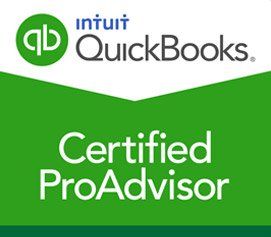Smart Bookkeeping in the Medical Industry
Most small and mid-sized businesses start out by keeping track of their own finances. Often, the onus falls on the founder or co-founder to take on these duties. Bookkeeping is something that every business has to take special care of. However, there are some aspects of bookkeeping for the medical industry which necessitates further scrutiny.
Part of this is because of the wide range of regulations and bureaucracy which hang over the medical industry- both for the company’s security and the patients’ confidentiality. As a business grows in the medical industry, the average business owner may find that their bookkeeper needs more diligence in order to keep up.

Major risks of bad bookkeeping in the Medical Industry
The biggest risk a business faces with any employee handling its financials is, of course, fraud. Financial fraud is a major risk for a business because it can start out so small. A little bit here, a little bit there. A bad actor can employ anything from forgeries to embezzlement. Inconsistent financial records born out of the greed of an employee spells doom for the business when the Internal Revenue Service catches on!
Of course, human error cannot be ignored. Most in-house bookkeeping is really only as good as the experience and confidence of its bookkeeper. Deciding to use a third-party bookkeeper mitigates this risk. Yoke Tax, for example, maintains a strict standard of industry practices and management. Many Yoke Tax consultants have years of experience under their belt working with medical industry businesses. Set up a free consultation to see how they can help you.
All of these factors cumulate into dozens to hundreds of hours of time dedicated to bookkeeping. For small and mid-sized businesses the costs of putting employees in a position where they are less efficient are extremely detrimental. The costs of hiring an inexperienced bookkeeper to record finances are also costly from a time perspective. This is because someone- often a business leader- will have to take time out of their day to oversee the bookkeeper’s activities.
It is essential that bookkeepers understand that they are not simply “handling some money.” They are wholly responsible for the business. If they report incorrectly, then the business suffers, the employees suffer, and the clients suffer. Nobody wants that! To avoid this, it is important to learn how to mitigate risk with bookkeepers in the medical industry.
How to make sure your bookkeeper avoids these risks
A good bookkeeper will always show his or herself to be trustworthy. Every transaction must be recorded and checked regularly. This is to ensure the best results, consistent financial statements, and minimal risk to the employee or business. Bookkeepers in the medical industry should also be aware of other job functions. A well-timed audit or bank reconciliation, as well as reporting which is simple to understand, all benefit the business owner in the long run. Once a trustworthy bookkeeper is found, a business owner can focus on growth, rather than the day-to-day financial functions of a bookkeeper.
Determining an accounting method beforehand is also important when it comes to bookkeeping. There are two types of accounting which every bookkeeper should be able to complete: accrual accounting and cash basis accounting.
Accrual accounting is a common form of bookkeeping in the medical industry. The bookkeeper notes any billables (ie expenses) the moment you are billed for them. The same is true for any receivables (ie payment) which you bill to a patient. For example:
If you bill a customer on a Monday and receive payment for your services on Friday, then your bookkeeper would record that receivable for Monday.
Cash basis accounting is much more prevalent in physician-owned businesses. This is because it provides the most up-to-date view of a business’ finances. Through cash basis accounting, receivables and billables are recorded once they are paid.
Using the previous example, that means that the bookkeeper would record the receivable for Friday.
Hiring an accounting professional can allow you to hit the ground running. Set up a consultation with a Yoke Tax professional today.
What to look for in a bookkeeper for your medical industry business?
Ideally, a business in the medical industry should hire a professional bookkeeper with a few years of experience under his or her belt. The level of expertise impacts not only the efficiency at which the work is done, but also the amount of oversight necessary to guarantee a good service. A more inexperienced bookkeeper may do well, but it is never a guarantee. A small business might have to go through their work regularly in order to avoid small mistakes that a professional would otherwise catch.
A good bookkeeper will offer a variety of services. Each of these items should in some way improve the financial record keeping operations of your business. Smart bookkeeping makes it easier to generate monthly and quarterly financial reports for future analysis. Depending on the business owner, a bookkeeper in the medical industry will perform their duties on a weekly, bi-weekly, or monthly schedule.
Some of these duties include:
- Bank account reconciliation
- Income statement and balance sheet preparation
- Payroll preparation
- Post Cheques, deposits, and credit cards
- Write customized reporting on finances
- Analyze of customized reports
- Billing statement and general ledger preparation
- Assistance in collecting outstanding receivables
- Cash management
A freelance bookkeeper may offer even more flexibility. Simply communicate with them your needs! If you are unsure about what would be best for your business, consult a Yoke Tax professional for free.
What separates online bookkeeping from physical?
Some businesses may not feel comfortable with outsourcing their bookkeeping to a third party. They may be especially nervous about the costs. Won’t outsourcing be more expensive than doing it themselves? These are legitimate concerns, but they are unnecessary.
Online bookkeeping services are often staffed with reliable professionals and industry experts. They understand the concerns of a business owner and are willing to work with you to meet your needs. Secondly, outsourcing routine services like bookkeeping reduces business costs in the long run. As a business owner, you will have more time to dedicate to other aspects of your business, such as client acquisition or marketing.
For business owners in the medical industry, delegating workload should be one of the most important actions taken. Let us
handle the numbers.



